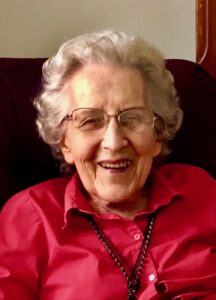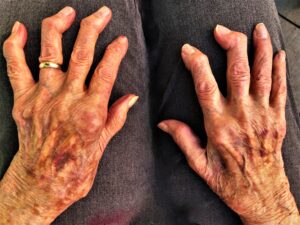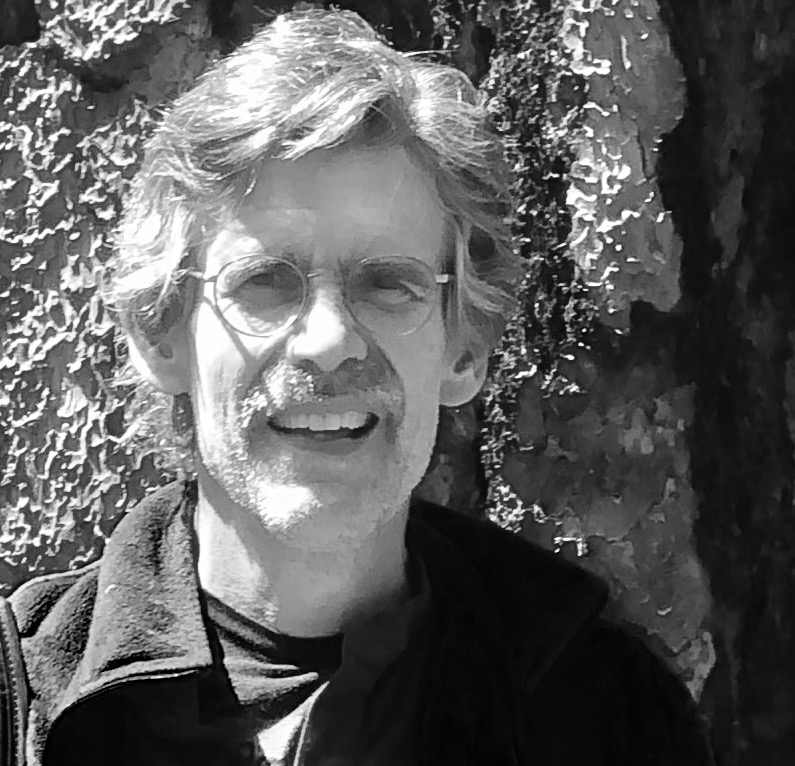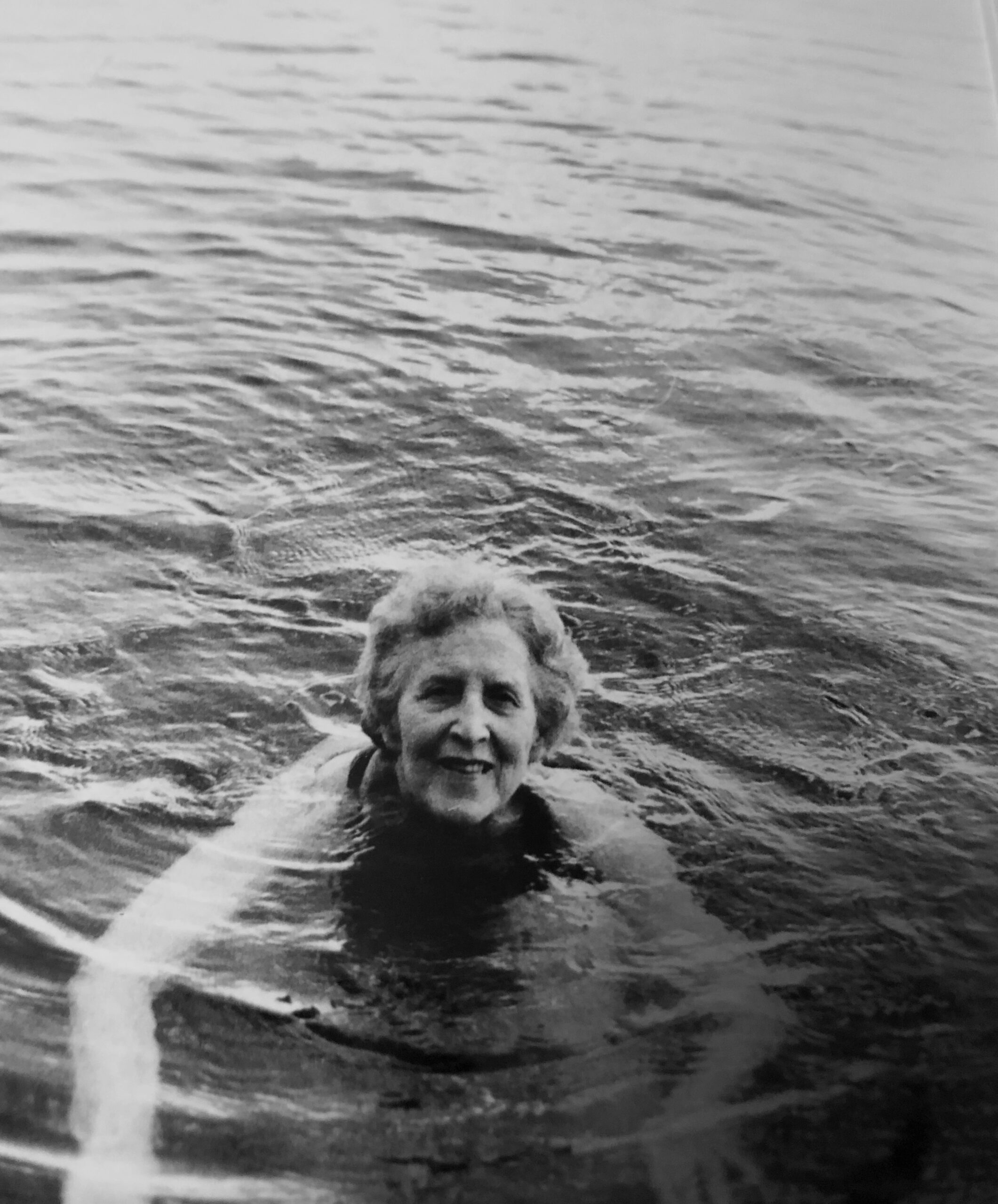An excerpt from The Long Way Home
The care center where my Mom lived—in St. Paul, Minnesota—was in quarantine the week that she died. It was March, 2020, with patches of green appearing through the melting snow, and Covid-19 sweeping across the Midwest, smothering the hope of spring. My brothers, Robin and Paul, who lived nearby, would have a nurse take a cell phone into Mom, so they could FaceTime. They would explain to Mom about the pandemic, and why they couldn’t come inside, and how they didn’t know when the quarantine would end. Each day she’d forget, and they’d explain all over again.
The last time I called, from our home in Chicago, Mom didn’t remember about the virus, or that the cafeteria was closed, or even where she was. “Everything is fine,” she said, sounding weak. “Though I think I’m just about done with this job.” She lived in the fog of dementia, but it often thinned, letting more light through.
“I just don’t seem to get much done anymore,” she continued. “You’re 95,” I said, “you don’t have to get much done. Let people do stuff for you for a change.” She chuckled at this. Then I asked what they had for dinner. She couldn’t remember. “Oh, nothing fancy,” she finally said. “But it was a great plenty.”
A great plenty. The phrase, which Mom often used, stuck in my head, and still does now. For her, it meant “there is always enough.” Though she often used it when there wasn’t—like at a poorly attended church potluck or fundraiser. “We’ll make do,” she’d always say.
Like thousands of other elders who were isolated from their children and grandchildren due to the Covid virus, Mom lived through the Depression and Dust Bowl and Stock Market Crash and WWII, and other times when having enough was both gift and goal, a cause for gratitude. The Covid era has been such a time—a time of fear and loss, where we have struggled to imagine enough. Enough money or work or facemasks or Covid tests or vaccines, or compassion to make it through.
The word compassion literally means “to suffer with,” and it’s the quality I most admired in my mom. She knew it was what enabled the possibility of “a great plenty,” of there being enough—for everyone, no matter the zip code. And that’s the world she lived toward—in small ways, in a small Iowa town, but with great love.
At the time, I was thinking more about that town, Maquoketa, because we were amid the most critical and combative presidential campaign in my lifetime. And it was the first election that Mom—a lover of politics, and a passionate Democrat—could not follow. Mom liked face-to-face campaigning—hand squeezing and baby hugging at county fairs and diners and park pavilions. And since the Iowa caucuses were the first Presidential testing ground, all the candidates always came there. You could actually meet them! One even slept over at our house (Sen. Paul Simon). Mom never really understood the internet or social media. She never sent an email or texted or owned a cell phone. Over the years, most of Mom’s “news” came through the telephone, the radio, and four TV stations. Or through the various streams of small-town gossip, which pooled in the coffee shops and churches.
 Mom watched her beloved News Hour on PBS for decades, but the last time I visited, she couldn’t follow it anymore. Then her eyesight grew cloudy, so she couldn’t read the newspaper. The outside world was shrinking for her. Through the windows of her room, or the cafeteria, she watched the leaves and light changing, or she talked to her caretakers or her children. Her compassion still burned, but it was more personal, elemental—the glimmering embers of a dying fire.
Mom watched her beloved News Hour on PBS for decades, but the last time I visited, she couldn’t follow it anymore. Then her eyesight grew cloudy, so she couldn’t read the newspaper. The outside world was shrinking for her. Through the windows of her room, or the cafeteria, she watched the leaves and light changing, or she talked to her caretakers or her children. Her compassion still burned, but it was more personal, elemental—the glimmering embers of a dying fire.
The day after I talked with Mom on the phone, my brothers were notified that she was near the end. So they rushed to the care center, and in spite of Covid protocol, were buzzed in. Evading the wheelchairs, and frail bodies shuffling by, they hurried toward Mom’s room, and the growing darkness. But they couldn’t make it in time. Mom had just died, in the arms of her nurse, Gail, whose face was still streaked with tears when they arrived.
I later called to thank Gail for being there at such a sacred time when we could not. “It was a blessing to be with Dee,” she said. This startled me. It was “a blessing” for Gail to risk her own life—on the front lines of the pandemic—to be with my mom?
Her voice, so clear and certain, filled me with gratitude. And since George Floyd was murdered nearby shortly thereafter, igniting demonstrations across the Twin Cities, the image in my mind’s eye, of a middle-aged Black nurse, and her White, elderly patient, has grown more emotionally charged: Gail cradling Mom in her last moments, suffering with her to the end. The personal bridging with the political, in a world where bridges seem impossible.
Though my brothers and I video conferenced many times after Mom died, it was confusing to grieve alone, and to figure out what to do about a funeral. We didn’t want a virtual funeral, and since Mom was cremated we kept pushing the date back, hoping more could attend. But the pandemic didn’t wane. So that summer we finally had a graveside service in Iowa City, where Mom and Dad used to live, and where my brother, Ken, still does.
Nine masked people in a circle remembering and grieving and celebrating. It was so bright and hot that day that some of us broke out of our socially-distanced circle to step back into the cool shade of the oak trees that towered over the grave. 
During my time to speak, I recalled one of several conversations I had with Mom about her fear of death. “I’m not too keen on it,” she told me. “And I don’t believe all of the ‘pie in the sky’ stuff.” And then, after a pause: “But I do believe in God; that there’s something more.”
This prompted me to pull out “Let Evening Come,” a poem by Jane Kenyon, which I read at my father’s funeral, and suggested I could read at hers. The first stanza is: Let the light of late afternoon/ shine through chinks in the barn, moving/ up the bales as the sun moves down. The poem is full of images that call rural Nebraska to mind, where she and Dad grew up.
I noted that every stanza in the poem contains the word “Let.” Not “The sun shines” but “Let the sun shine.” Not “Evening Comes,” but “Let Evening Come.” We talked about our fear and not knowing, and about God and the mystery of God’s love. And if rather than having to know, we could just Let God handle it. Let evening come. Let yourself belong to Creation.
And then, in a moment of lucidity, Mom said, “I suppose that’s the faith part.” She put her hands over mine, offering love amidst her own cycles of worry. A little while later I rubbed some of her Jergens lotion into those old hands—into her palms and the crooked fingers which used to play the piano so meticulously—and then, into the thin, dry skin on her forearms. As I did this, she closed her eyes, and let out a deep sigh. I could sense a ripple of happiness, or relief, or something, and then realized she was simply enjoying a rare moment of physical intimacy. “That feels good,” she said.
“It’s really hard to be old isn’t it?” I asked a little while later.
“Yes, it is,” she said, her eyes still closed.
After the funeral we all had a picnic at Ken’s house—with carryout box lunches from the local co-op where Mom used to work. Since we were six feet apart, and outdoors, we removed our masks. The only way we could touch each other was through the love we could conjure with our words. Physical touch: we all felt the presence of its absence—the distance between us. And then, a couple of hours later, we drove home to our own Covid-infested cities.
During the next week, I sorted through some old photos and letters from Mom, which was a comfort. Especially one black and white shot of her swimming, which Rob took, and which I couldn’t stop looking at. Rob had inspired my own love of black and white photography and printing when I was in high school. In the darkroom, I learned to frame the black and white image so that it would both limit and invite the beholder. A good photo, or painting, or essay—I finally figured out—feels both framed and frameless, both limited and limitless, which is what draws me to this one.
Mom loved to swim more than anyone I know. In this image, she is 75 years young and there are no boundaries or borders. The horizon merges with the sky—nothing but water and light, and my mom, paddling toward me. Moving out of the sun into shadow, from light into darkness, an image of death perhaps. But she looks at home in the water. You can see it in her eyes. And that she is not just swimming out of the light, but carrying it with her wherever she goes.
Excerpted with permission from The Long Way Home (Ice Cube Press) by Tom Montgomery Fate
Copyright © 2022 by Tom Fate
Photos courtesy of Robin Fate, Andrew Fate, Tom Fate and Carol Fate.
Tom Montgomery Fate

Tom Montgomery Fate is the author of six books of creative nonfiction. The most recent is The Long Way Home, a book of travel essays (2022). A regular contributor to the Chicago Tribune, his essays have been widely published and have often aired on NPR and Chicago Public Radio.

